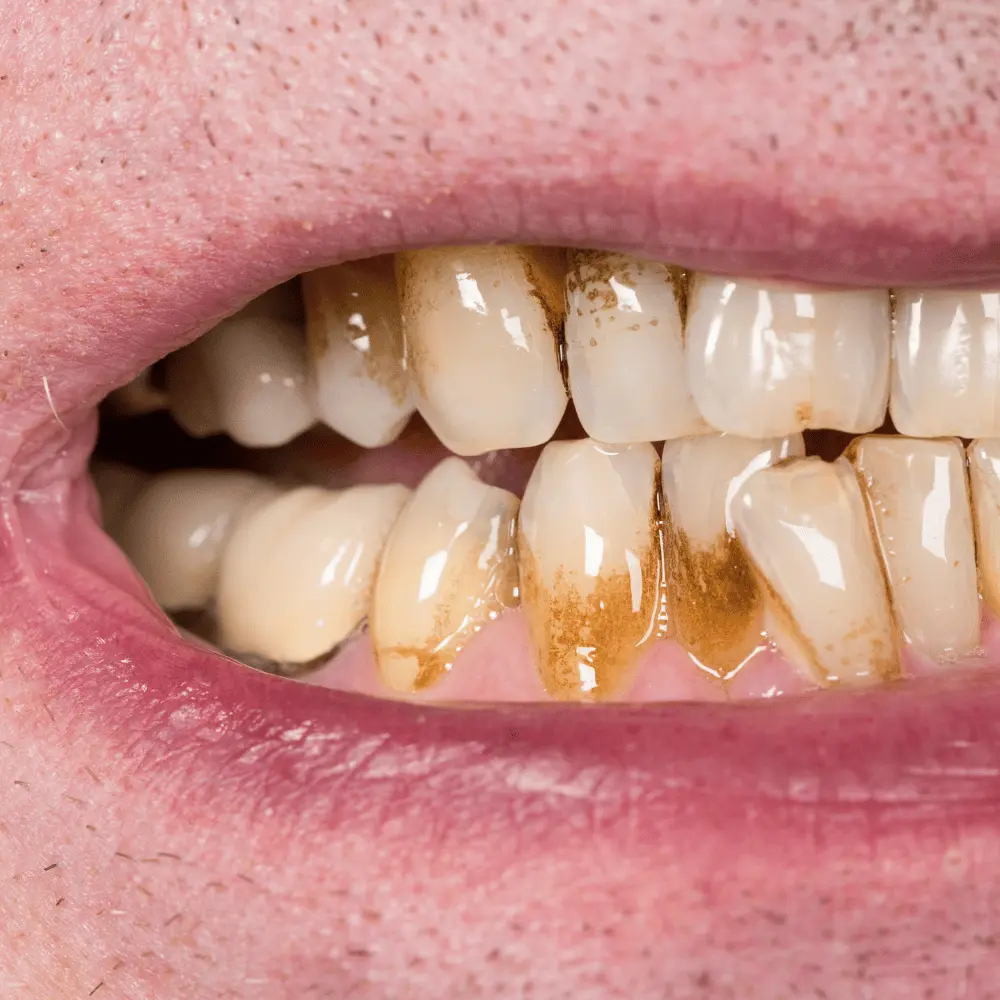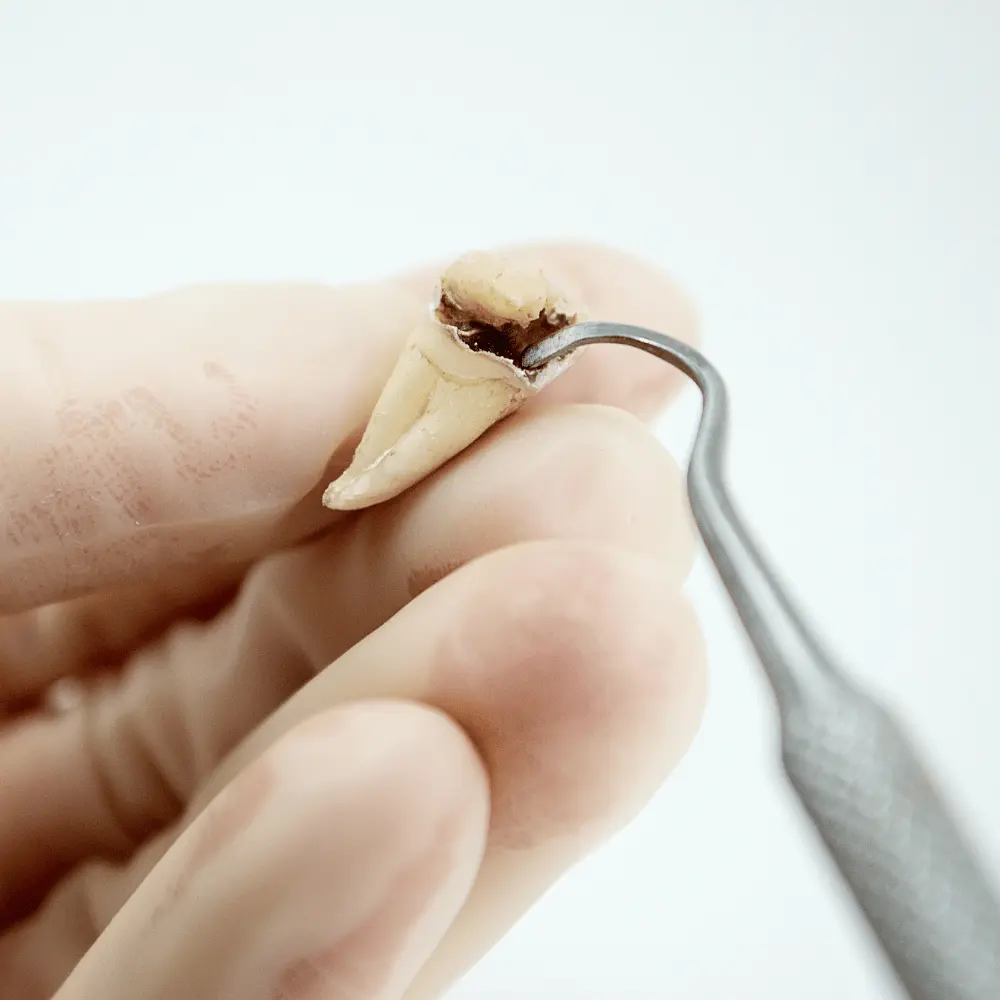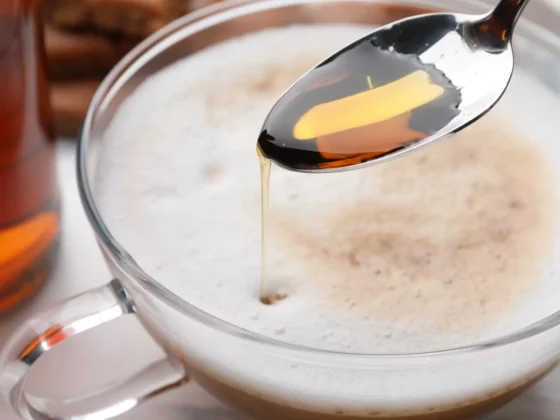Are you a coffee lover who has been troubled by the lingering question, “Does coffee cause cavities?” If so, you’re not alone. Millions of people across the globe enjoy coffee as part of their daily routine, but at the same time, worry about the potential impact it might have on their oral health. In this comprehensive guide, we will unveil the truth about the connection between coffee and cavities, diving deep into the various factors that may influence the relationship between your favorite brew and the health of your teeth.
From understanding the effects of coffee on oral health to debunking common myths and offering preventive measures, this article aims to provide you with the knowledge needed to enjoy your cup of java without compromising your pearly whites. So, sit back, sip your coffee, and let’s explore the fascinating world of coffee and cavities.
Can Coffee Cause Cavities? – Key Takeaway
- Coffee’s acidity, staining properties, and effect on saliva production can contribute to cavity formation, especially when combined with sugar or sweeteners.
- Debunking coffee myths, such as its supposed cavity-fighting ability or the belief it causes bad breath, can help make informed decisions about coffee consumption and oral health.
- Preventive measures like rinsing the mouth after coffee, limiting sugar, and scheduling dental checkups can help maintain oral health while enjoying coffee.
- Tooth-friendly alternatives like green tea and herbal teas provide a lower-acid option that may be better for oral health.
- Consistent oral care, including brushing, flossing, and fluoride toothpaste use, is crucial for minimizing cavity risk and maintaining oral health regardless of coffee consumption.
Understanding the Effects of Coffee on Oral Health
The undeniable popularity of coffee as a beverage has raised concerns regarding its impact on oral health, thereby necessitating a comprehensive examination of the manifold ways coffee can affect our teeth and gums.

Acidity and its Impact on Tooth Enamel
The primary concern regarding coffee and oral health pertains to its acidity, which stems from its pH level ranging from 4.85 to 5.10. (1) The acidic nature of coffee is responsible for gradually eroding tooth enamel, which is the outermost layer of our teeth that protects them against external damage. With the wearing away of tooth enamel, teeth become increasingly vulnerable to the development of cavities and tooth sensitivity. (2) Therefore, it is imperative to remain cognizant of the potential harm caused by the acidic nature of coffee and adopt appropriate measures to mitigate its impact on the tooth enamel.
Coffee Stains and Tooth Discoloration

Another common issue associated with coffee consumption is that… well, coffee stains teeth. The dark pigments found in coffee can penetrate the porous enamel, leading to unsightly yellow or brown stains on the teeth. While these stains do not directly cause cavities, they can make it more challenging to maintain a clean and healthy appearance. Tooth discoloration may also indicate a buildup of plaque and tartar, which can contribute to cavity development if left unchecked. (3)
Caffeine’s Influence on Oral Hygiene Habits
The caffeine in coffee, can have indirect effects on oral hygiene habits. For some, caffeine can lead to a dry mouth, reducing the production of saliva. Saliva plays a crucial role in neutralizing acids and washing away food particles, so a decrease in saliva production may increase the risk of cavities. (4) Additionally, individuals who frequently consume coffee throughout the day may neglect their oral hygiene routine, skipping brushing and flossing sessions. This negligence can further contribute to the development of cavities and other oral health issues.
Sugary Coffee Beverages and Cavity Formation

While the consumption of black coffee itself may not be a direct cause of cavity formation, the addition of sugar, flavored syrups, and other sweeteners can significantly increase the risk of cavity development. Sugar acts as the primary food source for Streptococcus mutans, the bacteria responsible for cavity formation. As these bacteria feed on sugar, they generate acids that can gradually dissolve tooth enamel, thus leading to the development of cavities. (5) Therefore, the consumption of sugary coffee beverages can contribute to the formation of cavities by providing an ideal environment that facilitates bacterial growth and acid production.
The Role of Coffee in Bacterial Growth
The relationship between coffee and bacterial growth is complex and multifaceted. On one hand, coffee comprises natural compounds that can inhibit the growth of bacteria responsible for dental caries. (6) On the other hand, when consumed with sugar, coffee can promote bacterial growth and acid production, as discussed earlier. Moreover, the acidic nature of coffee can create an environment that facilitates the proliferation of harmful bacteria, further exacerbating the risk of cavities and other oral health complications. Therefore, it is crucial to strike a balance in coffee consumption and adopt appropriate measures to minimize the adverse impact of coffee on oral health.
Debunking Common Myths About Coffee and Cavities
With so much information available about the relationship between coffee and oral health, it can be challenging to separate fact from fiction. Let’s debunk some common myths about coffee and cavities to help you make more informed choices about your coffee consumption and its potential impact on your oral health.

Coffee as a Cavity-Fighting Agent
One widespread myth is that coffee can act as a cavity-fighting agent due to its antibacterial properties. While it is true that coffee contains polyphenols, which can inhibit the growth of cavity-causing bacteria, this does not mean that coffee can prevent cavities outright. (7) The acidic nature of coffee and its potential to cause enamel erosion can still contribute to cavity formation, especially when consumed with sugar and other sweeteners. It is crucial to maintain a comprehensive oral care routine, including regular brushing and flossing, to effectively prevent cavities.
The Link Between Coffee and Bad Breath

Many individuals believe that coffee consumption leads to halitosis, or bad breath, due to its strong aroma. However, while the scent of coffee may persist in the mouth after drinking, it is not the primary cause of bad breath. Halitosis is typically caused by the accumulation of bacteria and food particles in the mouth that can generate unpleasant-smelling compounds. Although drinking coffee can temporarily alter breath odor, maintaining a proper oral hygiene routine can effectively combat halitosis. (8)
Debunking the Myth of Coffee and Oral Cancer
There is a common misconception that consuming coffee can increase the risk of oral cancer. While some studies have suggested a link between the consumption of hot beverages and an augmented risk of esophageal cancer, the evidence linking coffee to oral cancer is inconclusive. Some research has proposed that coffee may have protective properties against specific types of cancer, including oral cancer, due to its antioxidant content. (9) Nevertheless, it is imperative to note that additional research is necessary to fully comprehend the relationship between coffee consumption and the risk of oral cancer.
Maintaining Oral Health While Enjoying Coffee
For many individuals, giving up coffee is not a viable option. Fortunately, there are simple practices one can adopt to continue enjoying their favorite beverage while minimizing its potential impact on oral health.
Rinsing Your Mouth After Coffee Consumption

One of the simplest and most effective ways to safeguard teeth against the detrimental effects of coffee is to rinse your mouth with water after consuming it. Rinsing helps neutralize the acidity of coffee and eliminates any residual pigments that can lead to tooth discoloration. Incorporating the habit of swishing water around the mouth for approximately 30 seconds after finishing coffee can help keep teeth clean and reduce the risk of cavities.
Limiting Sugary Additives and Creamers

As previously mentioned, adding sugar and flavored creamers to your coffee can significantly increase your risk of developing cavities. To maintain good oral health while enjoying coffee, try to limit your use of these sugary additives. Instead, opt for sugar substitutes, such as stevia or erythritol, or try to enjoy your coffee black. If you prefer a little creaminess, consider using unsweetened milk alternatives like almond or oat milk.
Regular Dental Checkups and Cleanings

Regular dental checkups and cleanings are essential for maintaining good oral health, regardless of whether you are a coffee drinker or not. Professional cleanings help remove plaque and tartar buildup, which can contribute to cavity formation and tooth staining. Dental checkups also allow your dentist to identify any potential issues early, such as cavities or enamel erosion, and recommend the appropriate treatment. Aim to visit your dentist at least twice a year for optimal oral health.
Preventive Measures to Reduce Cavity Risks
To reduce the risk of cavities caused by coffee consumption, it is vital to adopt preventive measures. By selecting tooth-friendly coffee substitutes, fortifying tooth enamel with fluoride, and adhering to a robust oral care routine, one can minimize the potential negative impact of coffee on oral health.
Choosing Tooth-Friendly Coffee Alternatives

If you’re apprehensive about the impact of coffee on your oral health, it may be beneficial to explore tooth-friendly alternatives. Drinks such as green tea or herbal tea have lower acidity levels and contain advantageous antioxidants that can help protect teeth and gums. While these alternatives may not offer the same caffeine boost as coffee, they can still provide a warm and comforting beverage without promoting cavity development. (10)
Strengthening Tooth Enamel with Fluoride

Fluoride is a naturally occurring mineral that can help reinforce tooth enamel and enhance its resistance to acid attacks. Incorporating fluoride toothpaste and mouthwash into your oral care routine can provide an additional layer of protection against cavities, especially if you’re an avid coffee consumer. Moreover, drinking fluoridated tap water can help maintain strong and healthy teeth. It’s advisable to seek personalized recommendations from your dentist regarding the appropriate use of fluoride. (11)
Adopting a Healthy Oral Care Routine

Establishing a consistent and effective oral care routine is crucial for reducing the risk of coffee-related cavities. Brushing your teeth twice a day for at least two minutes using a soft-bristled toothbrush and fluoride toothpaste is essential. Flossing daily to eliminate food particles and plaque from between your teeth and using an antibacterial mouthwash to help control bacterial growth are also recommended. A healthy oral care regimen is the key to maintaining optimal oral health, even for coffee enthusiasts.
Conclusion
In consideration of the intricate relationship between coffee and cavities, one cannot simply provide a straightforward response to the query, “Does Coffee Cause Cavities?” Multiple variables are at play that contribute to this complex dynamic, making it a convoluted topic to address. Although coffee itself may not be directly responsible for cavity development, its proclivity for high acidity, the propensity to stain, and its effect on saliva production can cumulatively foster an environment conducive to the formation of cavities, particularly when sweeteners such as sugar are added to the mix.
It is possible to dispel commonly held misconceptions about coffee and cavities, however, by comprehending the various determinants involved in cavity formation and embracing preventive strategies. Ensuring optimal oral health while savoring the rich taste of coffee necessitates maintaining a regular dental care regimen, selecting tooth-friendly alternatives when necessary, and obtaining individualized guidance from a dental professional. With a comprehensive approach, the truth concerning coffee and cavities can be revealed, and a bright and healthy smile can be sustained for the foreseeable future.
FAQ
How can I reduce tooth staining from coffee?
To reduce tooth staining from coffee, try rinsing your mouth with water after drinking, using a straw, brushing your teeth regularly, and scheduling professional dental cleanings.
Can adding milk to coffee prevent cavities?
Adding milk to coffee can help neutralize some of its acidity, but it's not a foolproof method for preventing cavities. Good oral hygiene and limiting sugar intake are more effective in cavity prevention.
Are there any coffee alternatives that are better for oral health?
Yes, green tea and herbal teas are lower in acidity and can be better for oral health, as they contain beneficial antioxidants and do not contribute as much to cavity development.
Can I drink coffee after cavity filling?
It's best to wait at least 30 minutes to an hour after a cavity filling before drinking coffee, as the filling material needs time to set, and the temperature of the coffee could cause discomfort on the newly filled tooth.
How often should I visit the dentist if I drink coffee daily?
Regardless of your coffee consumption, it's recommended to visit the dentist at least twice a year for regular checkups and cleanings to maintain good oral health.












